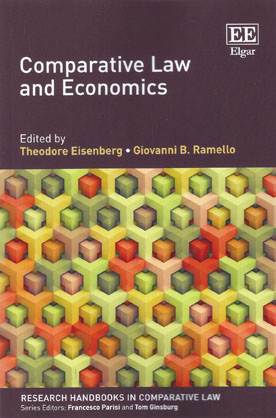We will be closed from 5pm Thursday 17th April for the Easter Bank Holidays, re-opening at 8.30am on Tuesday 22nd April. Any orders placed during this period will be processed when we re-open.

Contemporary law and economics has greatly expanded its scope of inquiry as well as its sphere of influence. By focussing specifically on a comparative approach, this Handbook offers new insights for developing current law and economics research. It also provides stimuli for further research, exploring the idea that the comparative method offers a valuable way to enrich law and economics scholarship.
With contributions from leading scholars from around the world, the Handbook sets the context by examining the past, present and future of comparative law and economics before addressing this approach to specific issues within the fields of intellectual property, competition, contracts, torts, judicial behaviour, tax, property law, energy markets, regulation and environmental agreements.
This topical Handbook will be of great interest and value to scholars and postgraduate students of law and economics, looking for new directions in their research. It will also be a useful reference to policy-makers and those working at an institutional level.